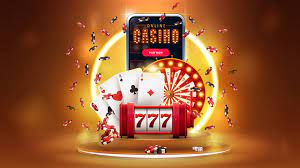Casinos have long captured the imaginations of people around the world. From the glitz and glamour of Las Vegas to the historic elegance of Monte Carlo, hoki99 are synonymous with excitement, luxury, and the tantalizing possibility of striking it rich. But beyond the flashing lights and spinning roulette wheels, casinos represent a fascinating blend of history, culture, and economic impact.
The History of Casinos
The concept of gambling is ancient, with evidence of games of chance dating back to the early civilizations of China, Egypt, and Greece. However, the modern casino as we know it began to take shape in 17th-century Italy. The first official gambling house, the Ridotto, opened in Venice in 1638, providing a regulated environment for gambling during the annual carnival season.
As gambling spread across Europe, it evolved, influenced by different cultures and local customs. By the 19th century, gambling establishments were thriving in cities like Paris and Baden-Baden, where the wealthy and aristocratic could indulge in this popular pastime. Monte Carlo, in particular, became synonymous with luxury and high-stakes gambling, attracting elite visitors from around the globe.
The Rise of Las Vegas
The most iconic symbol of the modern casino is undoubtedly Las Vegas. Founded in 1905 and legalized for gambling in 1931, Las Vegas transformed from a small desert town into a bustling metropolis, largely due to its burgeoning casino industry. The construction of the Hoover Dam brought workers and their families to the area, creating a perfect market for entertainment and gambling.
The post-World War II era saw Las Vegas explode in popularity. Visionaries like Bugsy Siegel and later, Howard Hughes, built lavish resorts along what would become the famous Las Vegas Strip. These establishments combined gambling with luxury accommodations, fine dining, and world-class entertainment, creating a new template for the casino resort.
